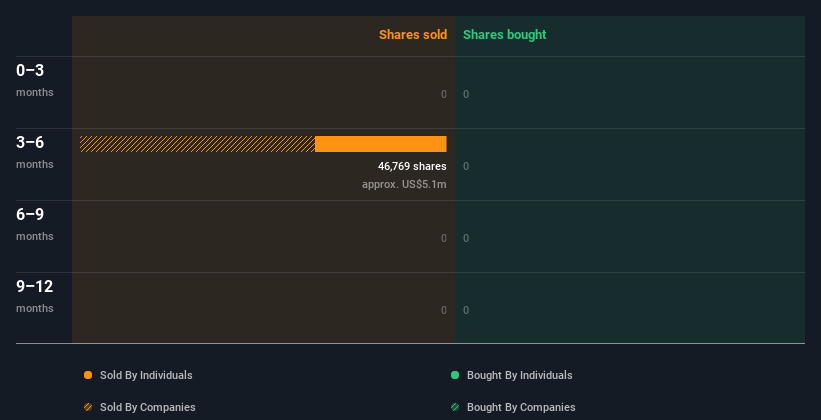Possible Bearish Signals With Intercontinental Exchange Insiders Disposing Stock
Many Intercontinental Exchange, Inc. (NYSE:ICE) insiders ditched their stock over the past year, which may be of interest to the company's shareholders. When analyzing insider transactions, it is usually more valuable to know whether insiders are buying versus knowing if they are selling, as the latter sends an ambiguous message. However, if numerous insiders are selling, shareholders should investigate more.
While insider transactions are not the most important thing when it comes to long-term investing, logic dictates you should pay some attention to whether insiders are buying or selling shares.
Check out our latest analysis for Intercontinental Exchange
Intercontinental Exchange Insider Transactions Over The Last Year
In the last twelve months, the biggest single sale by an insider was when the Founder, Jeffrey Sprecher, sold US$1.6m worth of shares at a price of US$108 per share. That means that an insider was selling shares at slightly below the current price (US$111). As a general rule we consider it to be discouraging when insiders are selling below the current price, because it suggests they were happy with a lower valuation. While insider selling is not a positive sign, we can't be sure if it does mean insiders think the shares are fully valued, so it's only a weak sign. This single sale was just 1.2% of Jeffrey Sprecher's stake.
Insiders in Intercontinental Exchange didn't buy any shares in the last year. You can see the insider transactions (by companies and individuals) over the last year depicted in the chart below. If you click on the chart, you can see all the individual transactions, including the share price, individual, and the date!
For those who like to find winning investments this free list of growing companies with recent insider purchasing, could be just the ticket.
Does Intercontinental Exchange Boast High Insider Ownership?
Many investors like to check how much of a company is owned by insiders. I reckon it's a good sign if insiders own a significant number of shares in the company. It's great to see that Intercontinental Exchange insiders own 0.5% of the company, worth about US$281m. This kind of significant ownership by insiders does generally increase the chance that the company is run in the interest of all shareholders.
So What Do The Intercontinental Exchange Insider Transactions Indicate?
The fact that there have been no Intercontinental Exchange insider transactions recently certainly doesn't bother us. It's heartening that insiders own plenty of stock, but we'd like to see more insider buying, since the last year of Intercontinental Exchange insider transactions don't fill us with confidence. While we like knowing what's going on with the insider's ownership and transactions, we make sure to also consider what risks are facing a stock before making any investment decision. Every company has risks, and we've spotted 2 warning signs for Intercontinental Exchange you should know about.
Of course Intercontinental Exchange may not be the best stock to buy. So you may wish to see this free collection of high quality companies.
For the purposes of this article, insiders are those individuals who report their transactions to the relevant regulatory body. We currently account for open market transactions and private dispositions of direct interests only, but not derivative transactions or indirect interests.
Have feedback on this article? Concerned about the content? Get in touch with us directly. Alternatively, email editorial-team (at) simplywallst.com.
This article by Simply Wall St is general in nature. We provide commentary based on historical data and analyst forecasts only using an unbiased methodology and our articles are not intended to be financial advice. It does not constitute a recommendation to buy or sell any stock, and does not take account of your objectives, or your financial situation. We aim to bring you long-term focused analysis driven by fundamental data. Note that our analysis may not factor in the latest price-sensitive company announcements or qualitative material. Simply Wall St has no position in any stocks mentioned.

 Yahoo Finance
Yahoo Finance 
